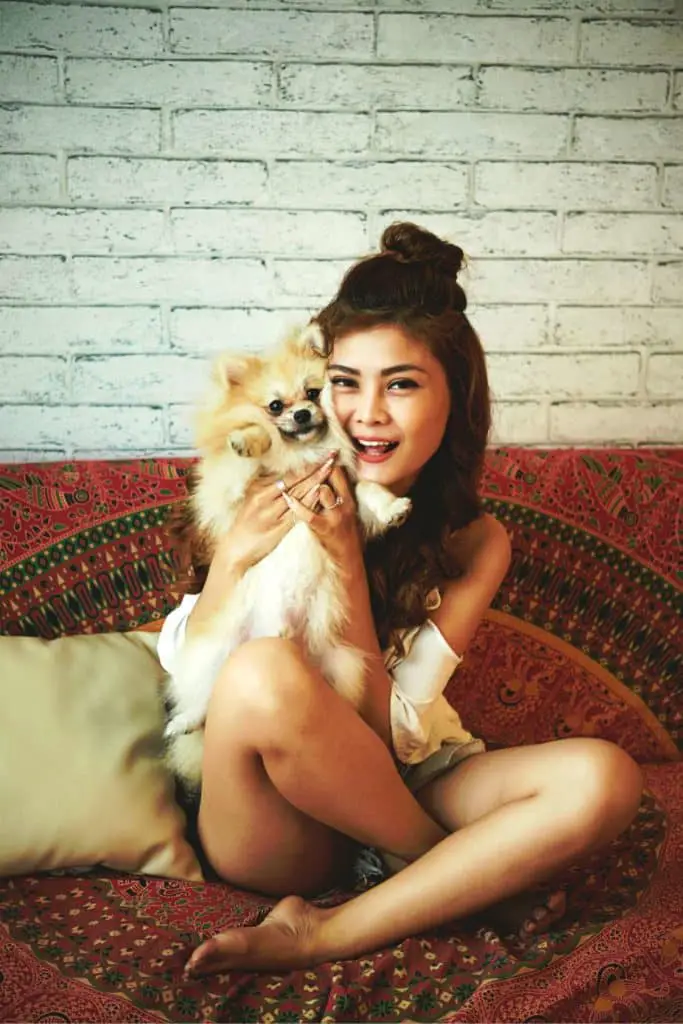Puppy growth spurts are short time periods where your puppy grows fast with many physical changes. If you have a pup at home, it’s important to have a basic idea about puppy growth spurts and what happens between those times to your pup. Only then can you observe if your puppy is growing at a healthy rate without any issue.
Getting a pup for the first time is a life-changing event. That pup will definitely change your life for the better. Even though the pup would be a part of your life, you are their whole life for that pup. So it’s your responsibility to give your pup every bit of love and attention you can. I think knowing about puppy growth spurts and observing if your pup is getting bigger in a healthy way is a good way to show your love for your pup. So, let’s talk about the main puppy growth spurts.
Table of Contents
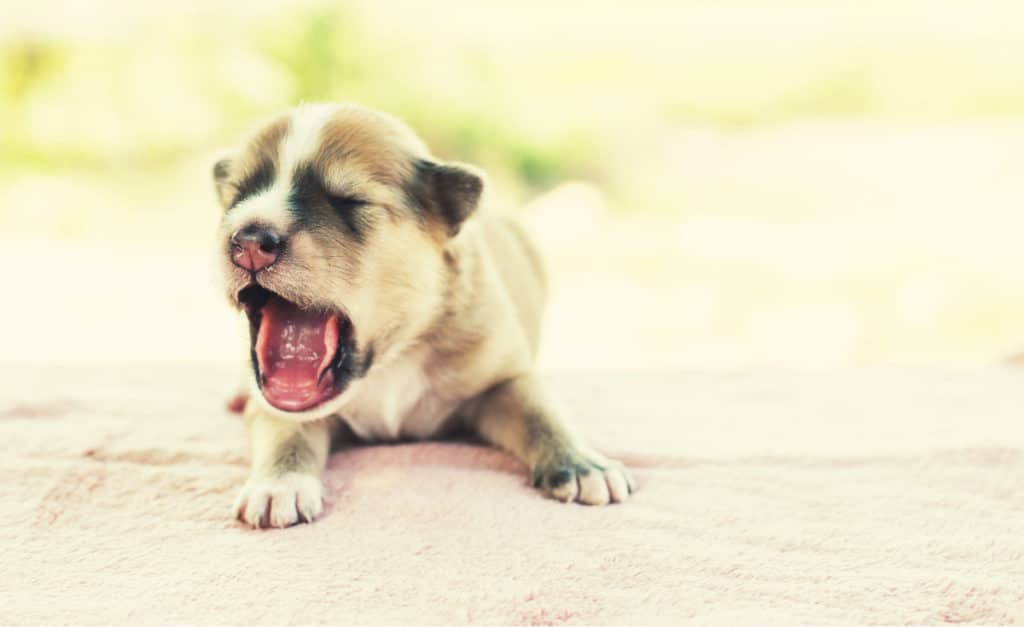
1 – 8 Weeks
Since this is the first period of your pup’s life, it’s essential to know the details about this growth spurt, especially if you are getting a new pup at this age.
Health and body Development
In this period, the pup will gain full control of their body. In this time period, they will gain proper bladder control so they will stop having accidental pees. The pup will also develop necessary motor skills and will start to use all their senses, such as hearing and smell. They will also start to grow their baby teeth at this time period.
First Impressions
The puppy’s brain goes through an extensive development spurt in this time period. Even though most of them won’t find their forever home during this time, their personalities will have huge effects on how they live during this time. Unfortunately, this leaves only a small window for pups to learn everything to shape their personality and create their future behaviors.
Because of this, give your pup plenty of playtimes and all the attention you can give when you get your pup. This will help your pup starts on the right track.
Nutrition for the Pup
All puppies usually start to eat solid food around the age of 3 – 4 weeks. When they become 6 – 8 weeks of age, they should eat only puppy food. Remember that puppies have unique nutrition needs. Since they grow at a rapid speed, they need more protein than an adult doggo. They also need DHA (Docosahexaenoic acid) to help develop all brain functions and calcium and phosphorous to grow proper bones.
So, it’s essential to give your pup only puppy food to meet those needs. Adult dog food has different nutrition levels. That’s why you should give only puppy food. A balanced diet and proper nutrition supply are compulsory for your pup to grow bigger and better in a healthy way.
Usually, smaller breeds develop physically faster than larger breeds. Therefore, puppy food requirement depends on the breed. For smaller breeds, it takes about one year to reach maturity, but for larger breeds such as Labrador or Golden Retrievers, it takes more than one year to reach maturity. So, you have to keep giving them puppy food till they mature. It’s best to consult with your vet before switching to adult dog food for your pup and changing their diet.
Pup’s Behavior
Your pup’s socialization is where they start to understand the world. During this time, they start to learn discipline, how to play, bite inhibition, and other social skills. Puppies usually learn these important lessons by interacting with other puppies. So, it’s better to put your pup in puppy programs or put with other puppies during this time as playtimes.
This is also the perfect time to start giving your pup a positive experience with other people. So, introduce your pup to other dog lovers and let them have more affection and positive vibes with other people. This will make the foundation on how your pup would behave toward other humans when they grow up. This will also reduce your pup’s aggressive level a lot.
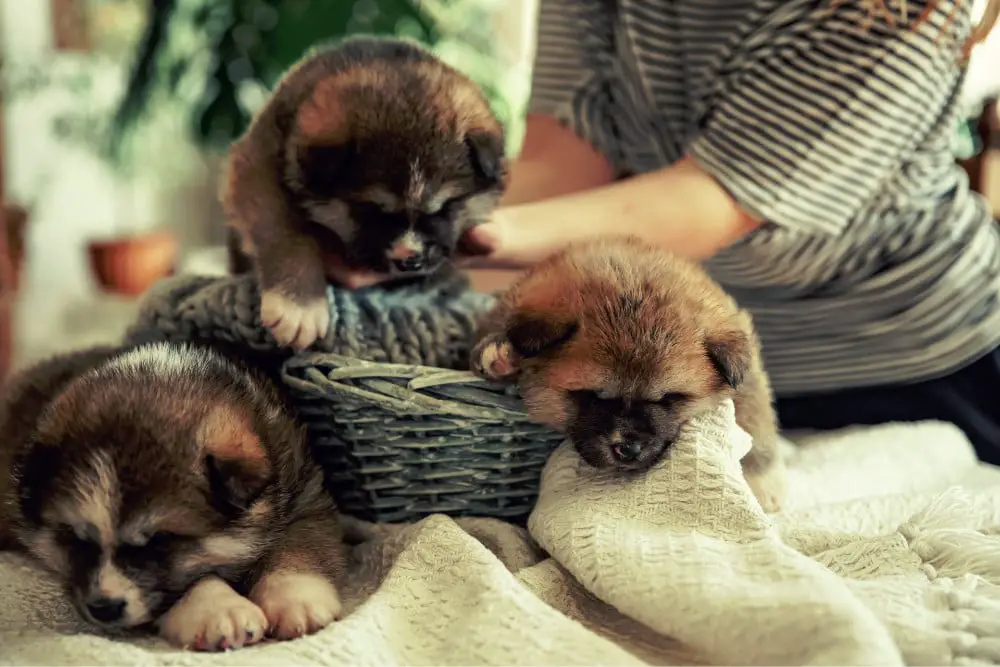
8 – 16 Weeks
In this stage, your pup’s growth rate will increase, and they will understand the world around them.
Learning the basics
In this stage, they will show a lot of excitement. They will also have some huge changes. Pup’s brain will continue to develop and will start to observe the world around them better. This is the best time to create a strong bond between you and your pup. Not only that, but this is also the best stage to start training your pup to properly behave.
Training & Vaccination
Puppies are always learning. They will observe both good and bad behaviors. So you have to actively teach your pup the good things.
You can start by teaching them to walk the leash and where to go potty. You can also teach basic commands like “Sit” and “Stay.”
If you like to learn more details about “How to Potty Train your Pup,” you can read this article on How to Potty Train a German Shepherd Puppy.
Also, don’t forget to contact your vet and get all the vaccinations your pup needs.
Puppy Nutrition at 8 – 16 Weeks
Usually, for the first 6 months, puppies require 3 meals a day, morning, mid-day, and evening. But it’s better to check with your vet the best amount for your pup because some might need a different approach (if your pup is suffering from an illness or obesity).
Also, the breed also matters. If your pup is a large breed like German Shepherd or Doberman, then you should give them large breed puppy food till they hit maturity. A large breed is a breed that weighs more than 50 pounds. The reason for this is large breeds require different nutrition. So, dog foods that are specific to large breeds promote joint health and more.
Bonding
Most puppies’ first interactions are with their littermates. But by this stage, most of them have found their forever homes and would have more human interactions.
In this stage, it’s important to have more and more human interactions. You should spend more time teaching your pup and playing with them in this stage because this is the stage that your pup understands how to be in the human world.
It’s very important to teach them good behaviors and shed the bad ones. With the right training and bonding, your pup will grow into a good, well-behaved, proper adult doggo. This experience would also be fun for both you and your pup.
Most puppies bite a lot. So if you notice that in your pup, that’s completely normal. But you should address it so with time your pup would stop doing it. The reason for this is nipping, or biting is the puppy’s primary communication method.
Usually, they nip you when they want to play with you. But the nipping can turn into an accidental painful biting unless you address it.
In this stage, your pup should be socialized with other humans so they would understand the world around them is a safe and positive place. If this is not done properly, then your pup can become an angry pup. If that’s the case, then you have to deal with it accordingly. You can learn more about how to deal with an angry puppy from here.
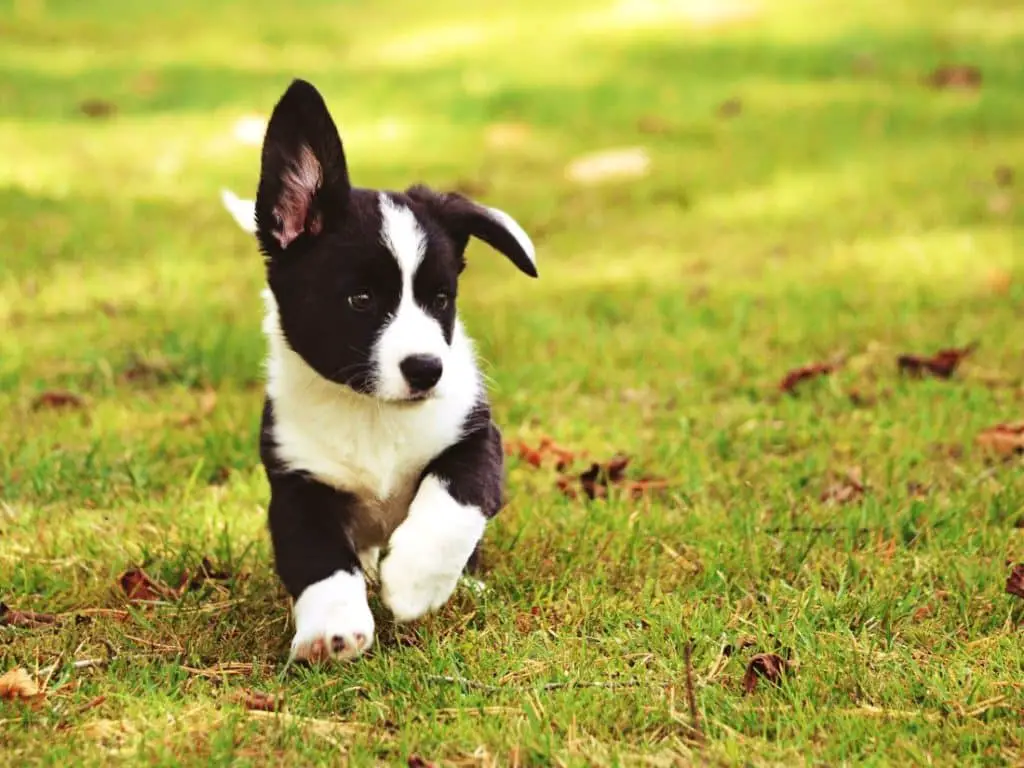
4 – 6 Months
Think about adolescent years in our life. 4 – 6 months period is like that for your pup.
“Adolescent” Period
Just like us humans, puppies also tend to be disobedient around this time. That’s why it’s called the “adolescent” period.
Just don’t try to force your pup to be more obedient around this time. Be patient because your pup is figuring out their place in the world around this time. It’s better to keep your pup in a consistent daily routine (same daily routine) around this time. This will help your pup understand what you expect. By doing this, your pup will eventually start to follow your guidance and rules.
Puppy Nutrition at 4 – 6 Months
This is a very important time period for your pup because around this time your pup will have huge physical growth. They will grow a lot around this time and gets closer to their full size. Their energy level will also increase around this time and also, they will be more active.
Your pup might shed their puppy coat around this time, depending on the breed. Then they will get an adult coat. So, grooming your pup around this time will surely help this transition. Also, observe for new chewing habits because it’s a sign of teething.
Vaccinations
Your pup should get its most important vaccines in this time like canine distemper, parvovirus, adenovirus, rabies, and all other vaccines your vet suggests. Keep in mind that you should not take your pup to Dog Parks or common play yards until they get all their vaccines. Your pup will get all the vaccines around the 5 – 6 month mark. After that, you can socialize your pup with other dogs without any worries.
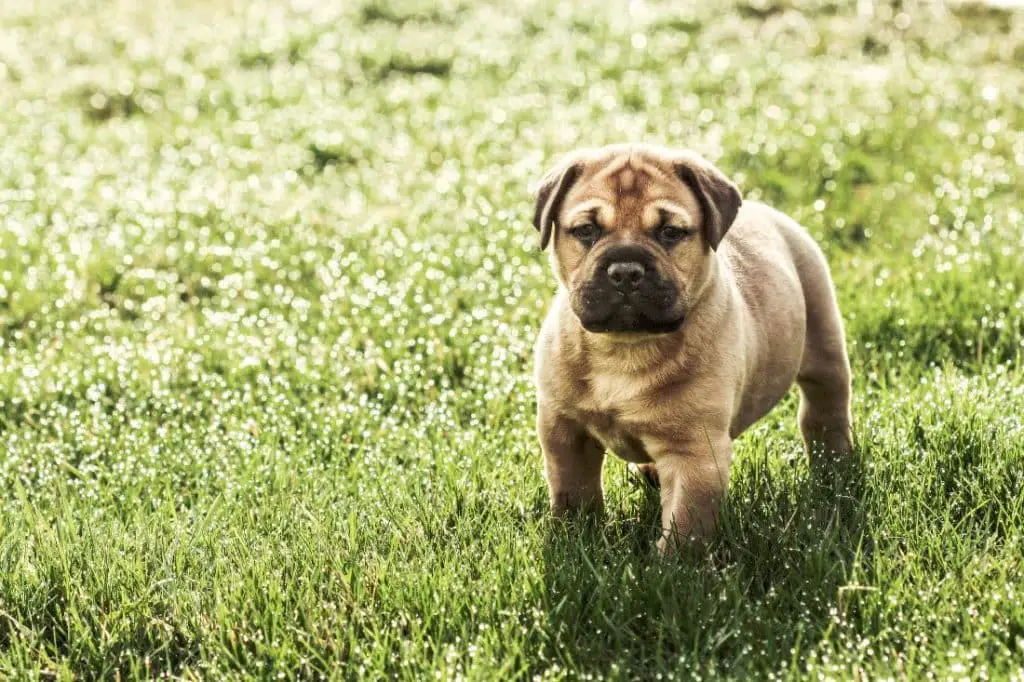
6 – 12 Months
This will be your pup’s teen years. This means after this time period your pup will no longer be a pup. It will be an adult doggo.
“Teen” Period
If your pup is a small breed, then it will hit full adulthood after one year. If your pup is a larger breed, then they will hit full maturity around the age of 2, but most of their physical and mental transitions would be done after one year.
In this time, your pup will mature more and will gain more independence. This will help you with letting your pup out more. But keep in mind that your pup is still a pup. So, they still need to follow your rules.
Final Growth Period
By this time, your pup would have grown to their complete height. Over the next couple of months, they will grow to the fullest. But don’t forget to give a fully balanced diet because they still require a full diet even if they look grown-up.
Nutrition at 8 – 12 Months
Continue feeding your pup formulated puppy food until they reach full adulthood.
Energy Boost behavior
Your pup will have tons of energy around this time. And with their growth rate, it will be fun to play with them. Your pup will explore the world a lot around this time, so they would be easily distracted.
This is also a good time period to start more exercise to build muscles on your pup so they would become healthier.
If you are keen on muscle building you can read this article on How to build muscles on dogs.
Keep in mind that in this time period, your pup will require a lot of attention with playing and other activities. So, the bond between you and your pup will increase to the fullest if you try to do different kinds of new activities.
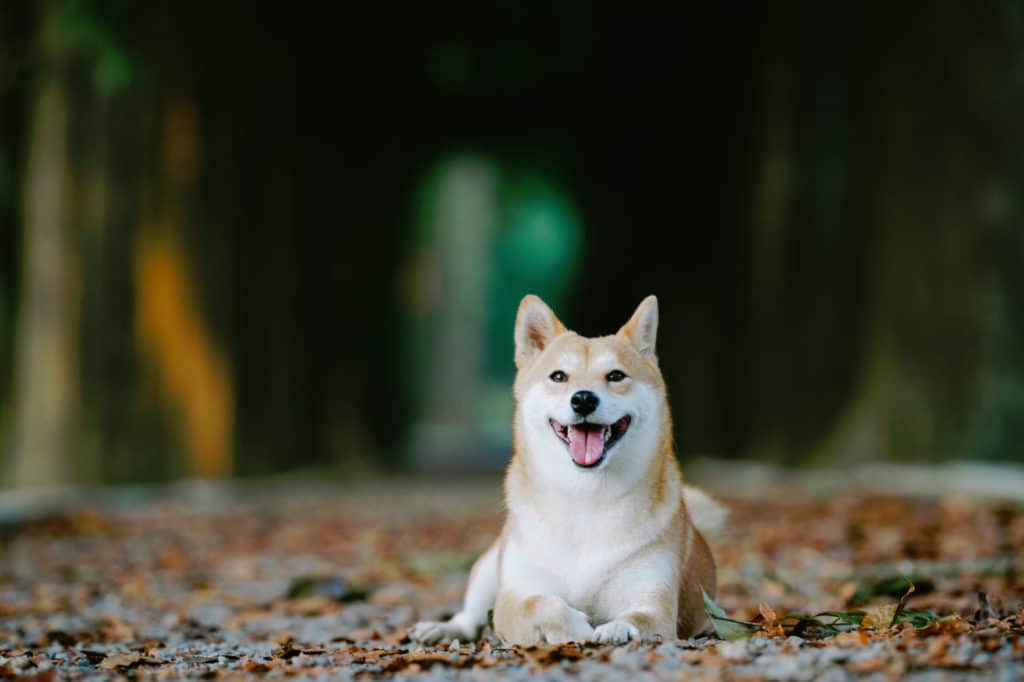
12 Months
Going into Adulthood
Small breeds will join full adulthood in the one-year mark. Larger breeds will join full adulthood around the two-year mark. But keep in mind that in one year mark, all dogs have reached very close to full maturity.
At this time, your pup’s joints, immune systems, and organs have grown almost to the fullest. So you can change your pup’s, oops, sorry, your doggo’s diet after consulting with your vet.
Breed Size and Puppy Development chart
The general rule for doggos is that if they are less than one year old, they are puppies. But as mentioned above, larger breeds need more than a year to be fully grown adult dog. This is a chart to follow through.
| Size | Adult Weight | Age of Maturity |
| Extra Small Breeds | Less than 8 Pounds | 9 – 11 Months |
| Small Breeds | 8 – 20 Pounds | 12 Months |
| Medium Breeds | 21 – 50 Pounds | 12 Months |
| Large Breeds | 51 – 130 Pounds | 18 – 24 Months |
| Giant Breeds | Greater than 130 Pounds | 24 Months |
If your doggo becomes more than the average weight, they might suffer from obesity. If that’s the case, then you should consult with your vet and change your doggo’s diet and exercise routine.
FAQ
- Do puppies sleep more often during puppy growth spurts?
Just like human babies, puppies tend to sleep a lot when they are small. Puppies that are less than 2 weeks old tend to sleep 90% of the time. On average, puppies sleep around 18 – 20 hours per day, and that’s completely normal. They will be very active when they are awake and will sleep after they are tired.
- Do puppies calm down at 6 months?
As mentioned above, puppies are usually very active. But after 6 months, they will be more independent. So, you don’t have to pay attention all the time. But they will be very active even after 6 months.


